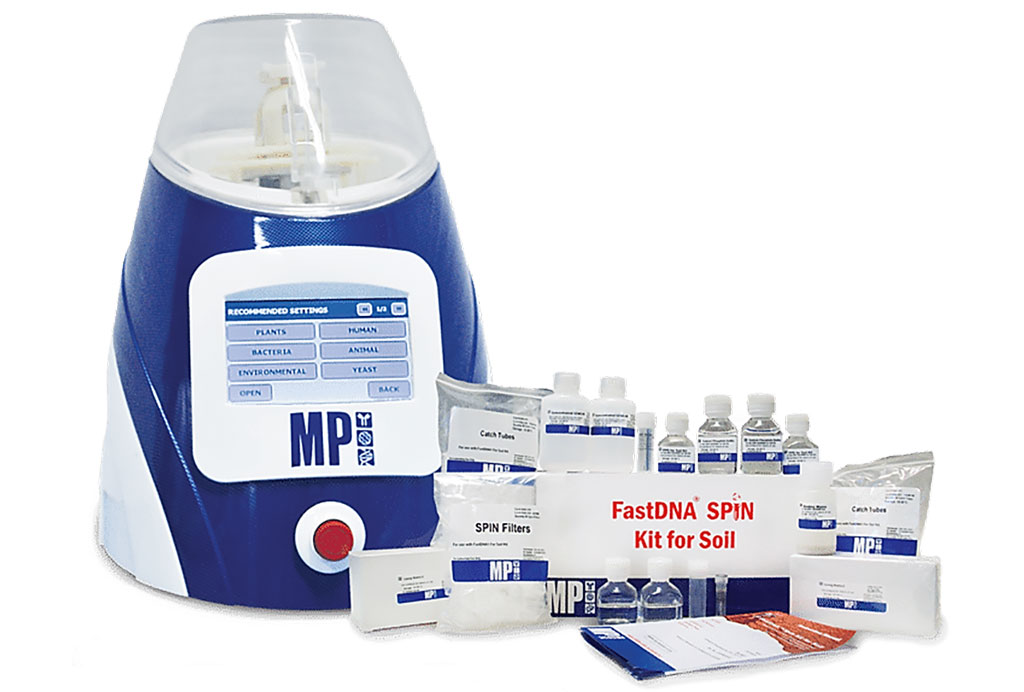Parkinson’s Disease Patients Have More Inflammatory Bacteria in Their Noses
By LabMedica International staff writers
Posted on 29 Dec 2021
Parkinson’s disease (PD) is a complex neurodegenerative disease characterized by nigrostriatal degeneration resulting in bradykinesia, rigidity, tremor, and gait dysfunction. Non-motor symptoms are also typically present, including depression, constipation, and alteration of smell. Diminished sense of smell (hyposmia), is a common hallmark of prodromal PD. Posted on 29 Dec 2021
PD gut dysbiosis is characterized by increased putative pro-inflammatory microbes, belonging to the phylum Proteobacteria, and a reduction in putative beneficial short chain fatty acids (SCFAs)-producing bacteria. Given the loss of olfaction that has been associated with pre-motor PD in 75%–95% of early cases, the nasal cavity may be a secondary site (in addition to the gut) triggering neuroinflammation in PD.

Image: FastDNA Spin Kit for Soil quickly and efficiently isolates PCR-ready genomic DNA (Photo courtesy of MP Biomedicals)
Medical Scientists at the Rush University Medical Center (Chicago, IL, USA) analyzed bacteria in the deep nasal sinus cavity of 30 people with Parkinson’s. The team noted that the deep nasal sinus cavity, far up in the nose, is close to the olfactory bulb, a brain structure involved in the sense of smell. The team also analyzed bacteria in the deep nasal sinus cavities of 11 of the patients’ spouses who did not have Parkinson’s. Spouses were chosen in order to account for environmental factors (e.g., bacteria that happen to live in a person’s house). Bacteria from 17 non-spousal healthy controls also were analyzed.
The scientists used deep nasal swabbing under nasal anterior endoscopy by a trained rhinologist. Total genomic DNA was extracted from the swabs using the FastDNA Spin Kit for Soil (MP Biomedicals, Santa Ana, CA, USA). PCR amplified and sequenced on an Illumina MiniSeq sequencer (Illumina, San Diego, CA, USA). 16S rRNA gene amplicon library preparation was performed using two parallel techniques. To provide superior resolution at the species taxonomic level, a multi-amplicon workflow was conducted employing the Swift Amplicon 16S + ITS Panel (Swift Biosciences, Madison, WI, USA).
The investigators reported that, compared to the controls, people with Parkinson’s tended to have higher amounts of certain bacteria that are likely to have pro-inflammatory effects. For example, many patients had high abundances of Moraxella catarrhalis, which is known to be an opportunistic pathogen, a bacteria that usually does not cause disease, but can under certain circumstances. The team noted that M. catarrhalis was not always linked with Parkinson’s. indeed, some patients had no detectable amounts of this type of bacteria. But microbiomes with the highest abundances of these bacteria consistently came from people with Parkinson’s. In addition to high levels of pro-inflammatory bacteria, Parkinson’s patients also tended to have lower amounts of bacteria with anti-inflammatory properties, including Blautia wexlerae, Lachnospira pectinoschiza, and Propionibacterium humerusii.
The authors concluded that their data indicated the presence of a dysbiotic and potentially pro-inflammatory deep nasal sinus cavity microbiota environment in PD subjects as compared to control subjects. Within PD subjects there was a positive correlation between putative pro-inflammatory bacteria, including M. catarrhalis, and PD clinical features. The study was published on December 8, 2021 in the journal npj Parkinson’s Disease.
Related Links:
Rush University Medical Center
MP Biomedicals
Illumina
Swift Biosciences













